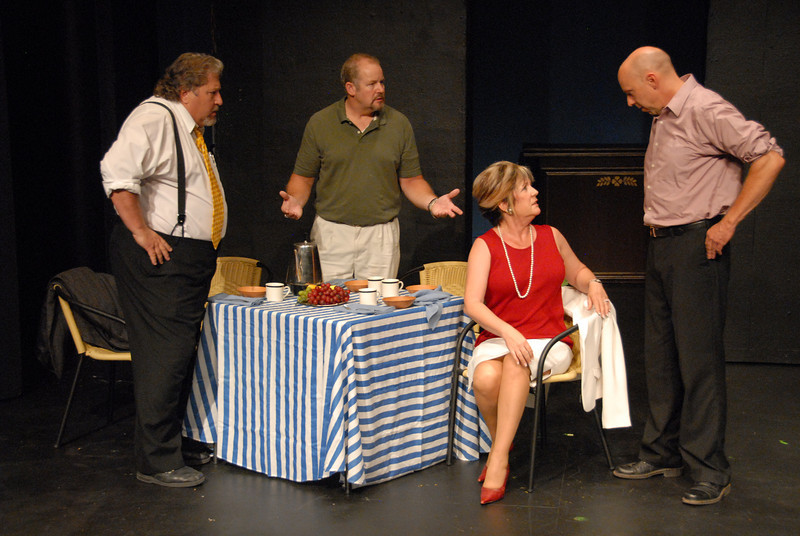 Funny story about my ONSTAGE play (spoiler alert: not actually funny):
Funny story about my ONSTAGE play (spoiler alert: not actually funny):
“At the Gates of the House of the Mother of Waters” is a play about soldiers. Ochoa is a U.S. Army scientist, a water expert assigned to assess the environmental health of each new area the unit moves into. Loughlin commands the unit. Stenson is another soldier in the unit, one who doesn’t much like Ochoa.
Originally, all three characters were female.
Before I sent the script along its merry way to Little Black Dress INK, I asked for feedback from a few people whose opinions I trust. They all had different comments, but they all said one thing: “I’m not sure how believable it is, them all being women.”
I’m not sure how believable it is. These trusted readers are science fiction/fantasy writers who have written, variously, about vampires, teenage girls discovering they have magical powers, and terraforming Mars. Yet they couldn’t wrap their heads around an all-woman play about the military.
Never mind the play is inspired by a story about an all-woman unit. Never mind that my army brat buddy explained to me that U.S. combat units are sex-segregated, so it’s actually less plausible for a female captain to be commanding a male soldier or vice versa.
They just weren’t sure how believable it was.
I initially resisted making the change. This year’s theme is “outside the lines,” after all—what’s more outside the lines than a scenario that even the most imaginative audience can’t believe? But with everyone mentioning it as a sticking point, I started to worry that this one frankly ridiculous detail would distract people from the piece’s more important messages about religious tolerance and water health. I made Stenson male. I didn’t change anything about the character, just switched an “F” to an “M” in the character descriptions and flipped the pronouns the other characters use to refer to him.
I sent the script to a few more people. No one said anything about the characters’ sexes.
I don’t regret making the change. Listening to the talented actors who read the script at the Minneapolis semifinalists reading, I got my best sense yet of who these characters are, and I like who Stenson is as a cranky jerk of a guy. It maybe even adds another layer of conflict—sexism piled on top of religious discrimination piled on top of military command structure conflict. It’s still more than a little sad to me that we still struggle so much with hearing women’s stories when there are no male voices in the telling.





